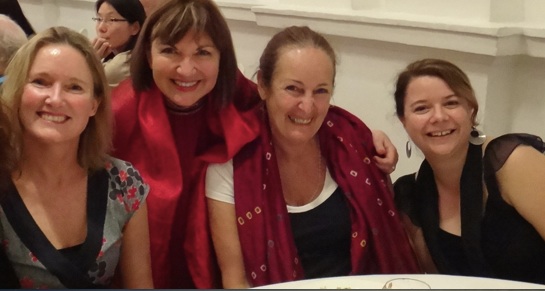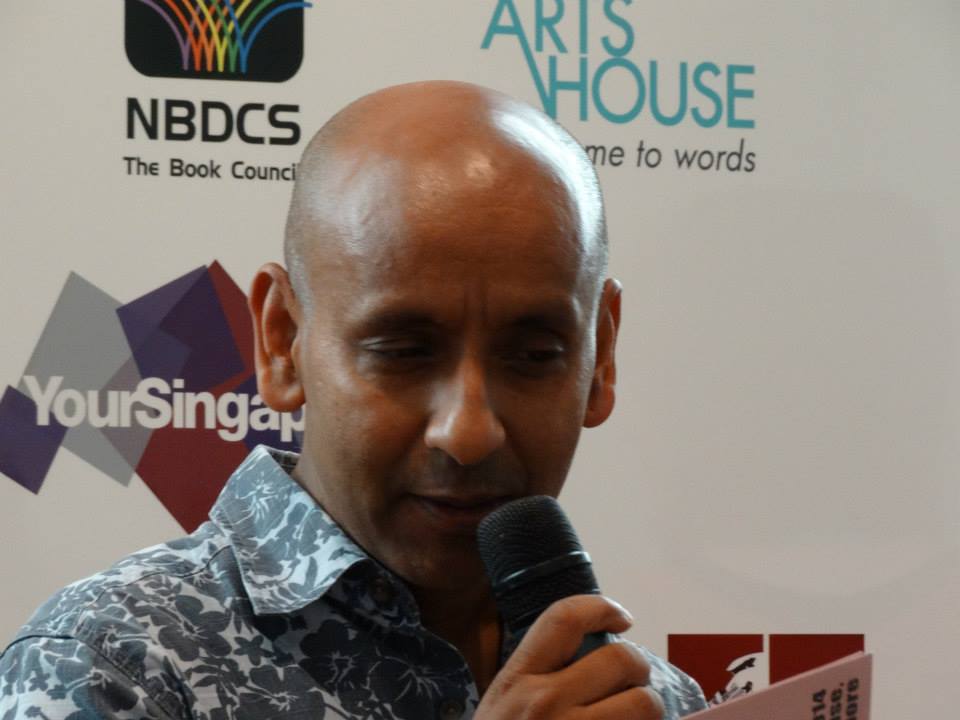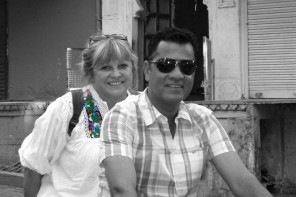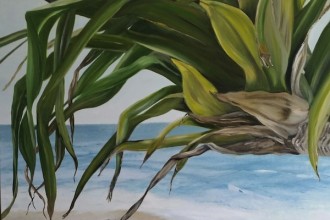For the past ten years Jane Camens has lived in the Northern Rivers but her work has taken her all over Asia organizing the annual conferences for the Asia Pacific Writers and Translators conference. This year, she writes, it’s taking place in the Philippines in October.
It’s a wonderful thing to be able to work from my home in the Northern Rivers and yet bring together writers—established and emerging— with literary translators, publishers, agents, and teachers of creative writing in different cities around Asia.
Last year, working with Singapore’s National Book Council, we held the event in that city’s grand old Parliament House, now called The Arts House. And I was delighted that, for the first time, writers from the Northern Rivers – Jessie Cole, Lisa Walker, Helen Burns and Victor Marsh— were able to be part of the event. They joined me with about 150 others from Asia and beyond, for four culturally fascinating – and fun – days.
Jessie Cole (author of Darkness on the Edge of Town and Deeper Water), wrote afterwards that it: ‘gave me my first international platform in which to share my work’ and that it was also ‘really lovely to be exposed to different works from around Asia.’
Lisa Walker, whose books to date include Archie’s Pilgrimage to the New Big Thing; Sex Lies and Bonsai, and Liar Bird, wrote: ‘Mixing with such an eclectic and talented group of writers from around the region is highly addictive.’ She chaired several panels, including one which asked what writers can do when their novel gets stuck. On the panel were Tim Tomlinson (co-founder of the New York Writers Workshop, and co-author of its popular text, The Portable MFA in Creative Writing), Nury Vittachi, author and humorist from Hong Kong, and Filipino/Australian author Merlinda Bobis. Walker shared the hot tips: ‘Tim says read around the topic, Nury says set yourself a deadline and Merlinda says dance!’
Dance, sing, eat, drink and laugh is what the writers do, particularly at the social events and book launches, getting to know each other and the work of writers from around our greater geographical region. This year in the Philippines won’t be different, if I know my Filipino friends, our hosts, who are renowned for their ability to enjoy themselves.
These events aren’t ‘conferences’ in the academic sense, although they started that way when APWT began as an initiative at Griffith University. Apart from panels on which writers talk to themes relevant to their writing, there are readings, chances for writers to launch new books (some of them self published), and master classes in writing and editing workshops with mentors from some of the best creative writing schools in the world.
Many of the same people, and a lot of newcomers, register each year. Not only have friendships developed but also the writers offer each other new platforms to promote their work. It’s not unusual, for instance, for invitations to come in afterwards for attendees to appear in festivals in India, Tahiti, Indonesia and even the World Literature Festival in the UK.
Some of the authors I know are coming this year include Sri Lankan born author Romesh Gunesekera (curtsey of the British Council); Robin Hemley who runs NonFiction Now (an initiative of the Creative Non Fiction at the University of Iowa); Xu Xi who started the low residency MFA in Creative Writing at City University Hong Kong (in which some writers from the Northern Rivers have enrolled); Dai Fan who runs an English language creative writing unit in China; Nick Jose who is one of Australia’s foremost spokespeople on engagement with Asia, and Filipino-Australian author and performer Merlinda Bobis. It’s possible that you haven’t heard of these authors, but that is the point. APWT brings the literatures of Asia and the Pacific to wider readerships. The Australian book market is comparatively very small; not big enough to support many fulltime writers. (The slogan of the APWT, and our new online magazine LEAP Plus—developed with the help of the Verandah Magazine team—is ‘Taking Writers Further’.)
I do this because it’s a passion of mine. I lived in parts of Greater China (Hong Kong, Shanghai and Macau) for around 15 years and felt isolated from a writing and English-language publishing culture until, with Nury Vittachi, I started Asia’s first annual literary festival that showcased writing (in English) from and about Asia. The Asian literary scene has changed hugely since 2001 when that first festival was run. Now, literary agents and publishers are keen to hear the voices of Asian writers with new ways of showing us the world we live in.
Most people who come to APWT conferences organize their own funding, either through universities, arts bodies, or they self fund. I can apply for limited funding from the Arts Council, the Copyright Agency Ltd, and sometimes the Department of Foreign Affairs and Trade, which together last year paid for about 11 Australians to go to Singapore. I ask for funding for a range of authors, always including one or more indigenous Australian authors, Asian-Australian writers, and writers whose work speaks of engagement with Asia.
APWT’s conference this year is titled ‘Against the Grain: Dissidence, Dissonance, and Difference in Asia-Pacific Writing and Translation’, and will take place in Manilla between October 22-25. It will be hosted by several of the universities, and will be led by the University of the Philippines and the Book Council.
Details of the event will be available on the APWT website soon after my return. (apwriters)A teaser about the event is up on LEAP+: leap-plus.com/manila
If you’re interested in what happened at our conference last year in Singapore, there’s a wrap up of the conference on our website here: apwriterswrap.up.
Jane Camens is Executive Director of Asia Pacific Writers & Translators. She is currently co-editing an issue of Griffith Review entitled ‘New Asia’, published in August this year.








